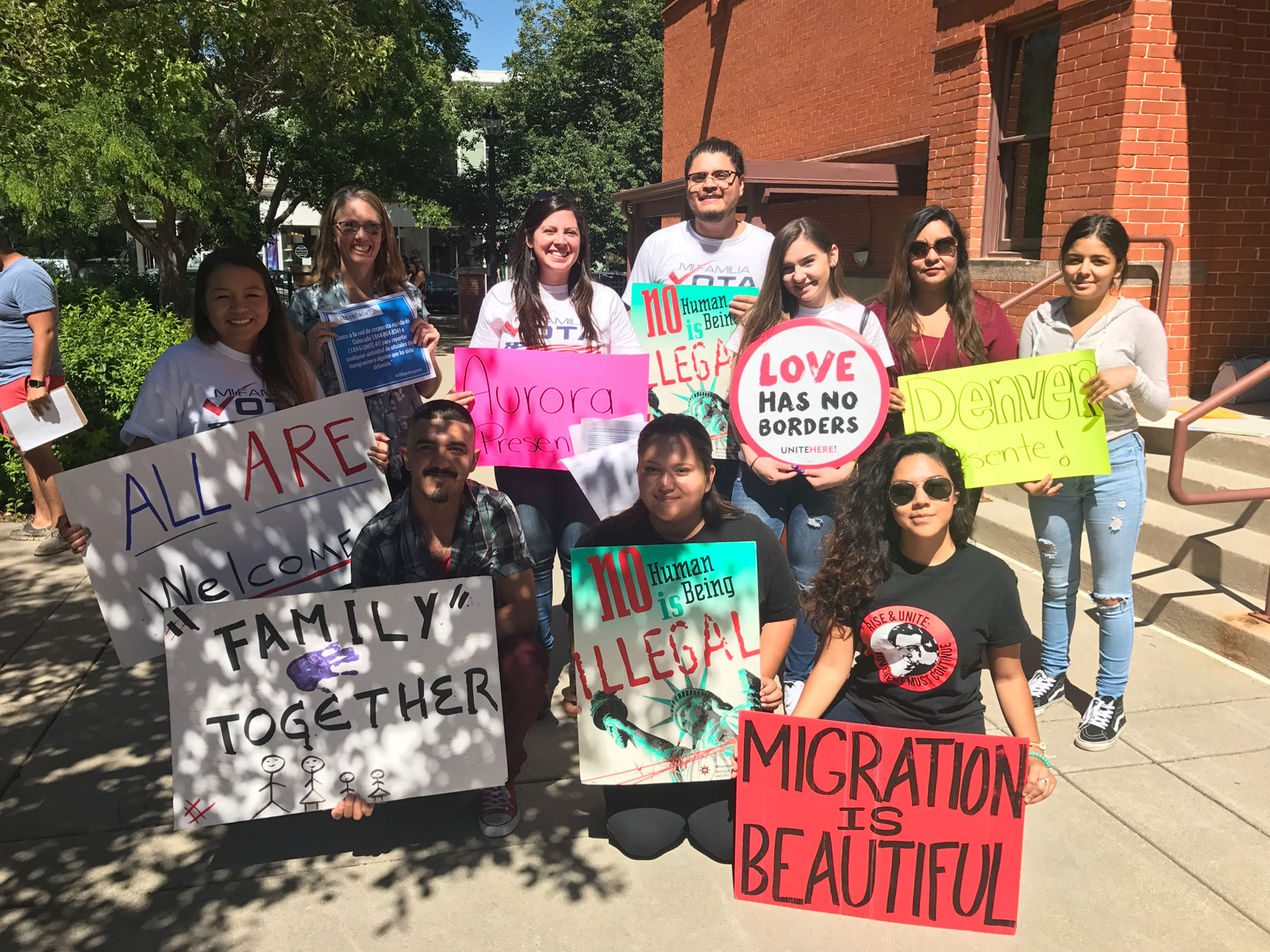The Local newsletter is your free, daily guide to life in Colorado. For locals, by locals.
Last February, a few weeks after Donald Trump was inaugurated as president after campaigning on promises of mass deportation, U.S. Immigration and Customs Enforcement (ICE) conducted a number of raids in at least six states around the country, picking up hundreds of undocumented immigrants. The raids sparked fear and panic in immigrant communities—families skipped work, stayed inside, and kept their children home from school.
They also sparked confusion. Immigration activists on the ground felt certain that they were seeing an increased level of enforcement, the first phase of Trump’s promised deportation force, while ICE insisted that the raids were “routine” and had been planned during former President Barack Obama’s tenure. On social media, rumors of random checkpoints and other unorthodox enforcement activities, which ICE described as “false, dangerous, and irresponsible,” spread like wildfire. Many of such reports turned out to be unfounded.

In Colorado and around the country, local immigrants’ rights groups realized they needed a way to respond to reports of ICE raids, both to determine the veracity of potentially dangerous rumors and to document and observe enforcement activity.
“Early on, there was a lot of frustration in the activist community around the country because members of the community were clearly being impacted, yet ICE was putting out the narrative that nothing was happening, there was no policy change, everything was the same as before,” says Ana Rodriguez, a community organizer with the Colorado People’s Alliance (COPA), a member-based organization that focuses on climate, immigrant, economic and racial justice issues. “As activists, we knew we had to be able to document what was actually going on so we could say with truth whether enforcement was increasing.”
On June 15, COPA, along with a number of other Colorado groups, announced the official launch of a statewide immigration rapid response hotline and network. Twenty-four hours a day, all across the state, community members who witness what they believe may be an ICE enforcement action can now call the hotline. A trained operator will record the community member’s observations and then activate a “confirmer” to go to the scene of the potential raid. If a raid is confirmed, the operator will then dispatch a trained “legal observer” to carefully observe and document, via written notes and photographs or videos, ICE’s actions.
Rodriguez said they encourage everyone to consider the network their first call in the event of a possible raid. “Anytime somebody from the community believes that activity they’re seeing might be related to immigration enforcement, we encourage them to call our hotline,” she says. “Not post about it and call 10 of their closest friends, but to call the hotline and tell us what they’re seeing and what they think is going on.”
The rapid response network will be staffed entirely by volunteers, all of whom undergo careful training, particularly the legal observers. The network is working with the National Lawyers Guild, a progressive bar association that includes lawyers, law students, and other legal workers, to train the observers on how to serve as unbiased observers and documenters, so that their notes can be used in later court cases, if necessary. The network currently has 140 volunteers who are trained and ready to begin work, but Rodriguez says more are needed, particularly outside the metro Denver area—both non-citizen volunteers (who can serve as operators) and citizen volunteers, who can safely serve as confirmers and legal observers, are welcome.
Michaela Miller, a bilingual fourth-grade teacher whose students are overwhelmingly immigrants or part of immigrant families, says she’s volunteering for the network because she believes now is the time to use the privilege of her citizenship to stand with immigrant families. “It’s our job as citizens to be able to put our bodies in between immigration authorities and the vulnerable people in our communities,” she says. “We don’t need to be in fear of putting ourselves out there in the same way that non-citizens do.”
The founders of the network hope that it will serve to both provide documentation of the administration’s immigration enforcement actions and soothe some of the panic and fear present in the immigrant community today. “As a COPA staff person, I see the value of a network like this for our members who are directly impacted by these raids, who are already facing increased activity…facing deportation,” Rodriguez says. “But also I see the value personally. As an undocumented person, I myself am worried about what’s going to happen if there’s a raid, if an ICE officer comes to our office, for example.”
Get involved: Citizens can call 1-844-UNITE-41 (1-844-864-8341) to report any immigration enforcement activity. Those who want to volunteer for the network, either as an operator or legal observer, can sign up here.
(Read about other local organizations that support immigrants and refugees)








